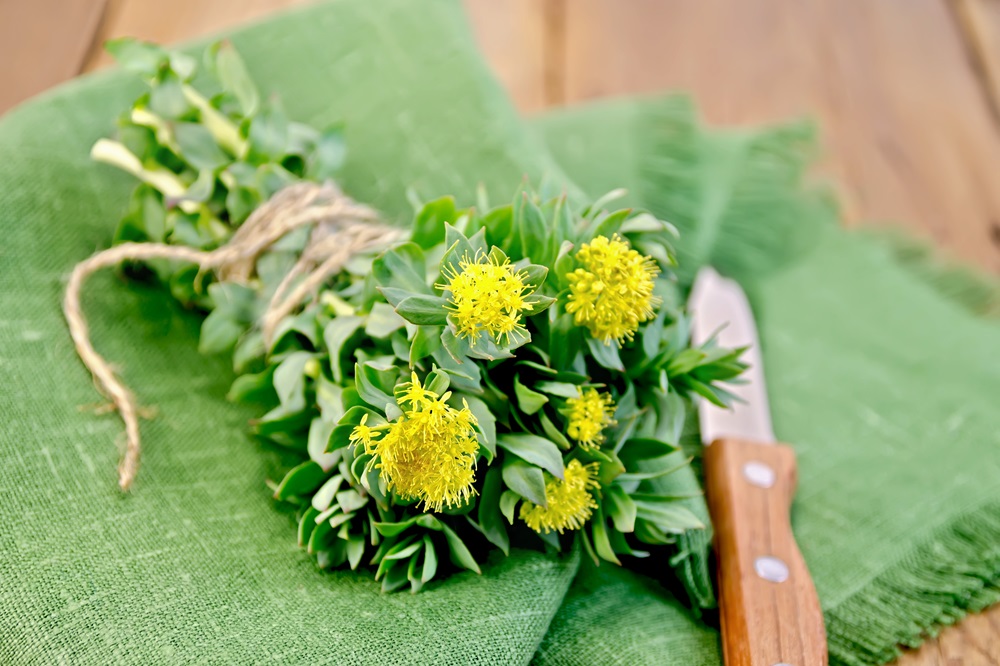Rhodiola rosea – Effects, Properties, and Side Effects of this Adaptogen

Rhodiola rosea is a small plant classified as an adaptogen. This perennial is rich in valuable compounds that may support cognitive functions and improve physical performance. It is increasingly popular among consumers and is often used as an ingredient in dietary supplements. What are the properties of Rhodiola rosea? How and when should you use it? What should it not be combined with?
Table of contents
Rhodiola rosea - what is it?
Rhodiola rosea is a perennial plant from the Crassulaceae family that grows naturally in subpolar and mountainous regions of Asia, North America, and Europe. It is also known as Arctic root or golden root, and in Poland, it can be found in the Sudetes, Carpathians, and Bieszczady mountains.
Rhodiola rosea, sometimes called roseroot, reaches about 30-40 cm in height. Its rhizome is short and bulbous, the stem is thick and unbranched, and its fleshy leaves, coated with a thick wax layer, have a distinctive bluish-green color that turns yellow and orange in autumn. The small flowers form clusters at the tops of the stems and can range in color from green and yellow to red.
Roseroot is valued for its rich profile of beneficial compounds and is recognized as an adaptogen - a substance that supports the body’s homeostasis and may enhance resistance to stress factors.
Rhodiola rosea - composition
Rhodiola rosea may seem modest, but it is packed with valuable components. The root is especially noteworthy, as it contains compounds such as:
- flavonoids,
- phenolic acids,
- phenylpropanoids,
- monoterpenes,
- coumarins,
- organic acids,
- tannins.
The most unique compounds in Arctic root are rosavin, rhodiolin, rosarin, as well as salidroside and p-tyrosol. These are believed to be largely responsible for the plant’s beneficial effects.
Rhodiola rosea - properties
Searches like “Rhodiola rosea benefits” or “Rhodiola rosea effects” are common among people considering supplements with Arctic root extract. What can golden root help with?
Scientific studies suggest that Rhodiola rosea may have anti-inflammatory effects, increase stress resistance, support cognitive functions, and positively affect mental well-being. Research indicates that it may optimize cortisol levels and stimulate serotonin, dopamine, acetylcholine, and norepinephrine receptors. This could help the body better handle stress, improve mood, and reduce anxiety. Additionally, it may enhance mental performance, increasing concentration, productivity, memory, learning ability, and information processing speed.
Rhodiola rosea may also have ergogenic properties, boosting endurance and physical capacity, while reducing perceived exertion and fatigue. It can help limit muscle damage during exercise, lower lactate levels after workouts, and support post-exercise recovery. These qualities make it appealing to athletes and those engaging in intense physical activity.
Moreover, some evidence suggests potential cardioprotective effects - the plant may reduce the risk of thrombosis and arrhythmias, help regulate blood pressure, and support lipid balance. Research also points to possible benefits for sexual function, fertility, and menstrual cycle regulation.
Rhodiola rosea supplements - who should use them?
Rhodiola rosea may be a good choice for stressed individuals dealing with prolonged mental strain. It can be helpful for athletes and physically active people, as well as those seeking cognitive support and improved mental efficiency. It may also assist individuals with mood disorders.
Rhodiola rosea - how to use it?
Rhodiola rosea is gaining more and more attention on the supplement market. The recommended serving size depends on age, health status, needs, and individual tolerance.
Safe daily doses are generally considered to be between 100-600 mg of plant extract. It is often advised to start with smaller amounts and gradually increase intake. Always follow the manufacturer’s instructions on the product label to avoid excessive consumption and unwanted side effects.
Rhodiola rosea - morning or evening?
Because Rhodiola rosea can have stimulating effects, improving alertness, concentration, and energy, it is recommended to take it in the morning. Taking it in the evening may interfere with falling asleep and reduce sleep quality.
Rhodiola rosea - before or after meals?
Rhodiola rosea supplements can be taken either before or after meals. Some sources suggest it works faster when taken before food, but certain people may experience stomach discomfort on an empty stomach. In such cases, it’s better to take it after eating. Ultimately, timing should be adjusted individually.
Rhodiola rosea - which product to choose?
When choosing a Rhodiola rosea supplement, check for the content of active compounds such as salidroside and rosavin, which may contribute to its beneficial effects.
The best products provide root extract standardized for active ingredient content, ensuring a consistent and effective dose in each serving.
Rhodiola rosea - what not to combine it with?
Research on Rhodiola rosea interactions with other dietary components is still ongoing. Currently, it is often advised to avoid alcohol while taking Rhodiola rosea supplements. Both alcohol and adaptogens can influence the central nervous system in similar ways, and combining them may place additional strain on it.
Rhodiola rosea - contraindications
Rhodiola rosea is generally considered safe, but some people should avoid it.
Since it may interact with psychiatric medications, individuals taking antidepressants or mood-altering drugs should consult their doctor before use. Those with diabetes should also be cautious, as it may influence blood sugar levels.
Rhodiola rosea - side effects
When used as directed, Rhodiola rosea supplements are not linked to adverse effects. However, excessive intake may cause headaches, anxiety, or overstimulation. Taking it in the evening may also lead to sleep disturbances or insomnia.

